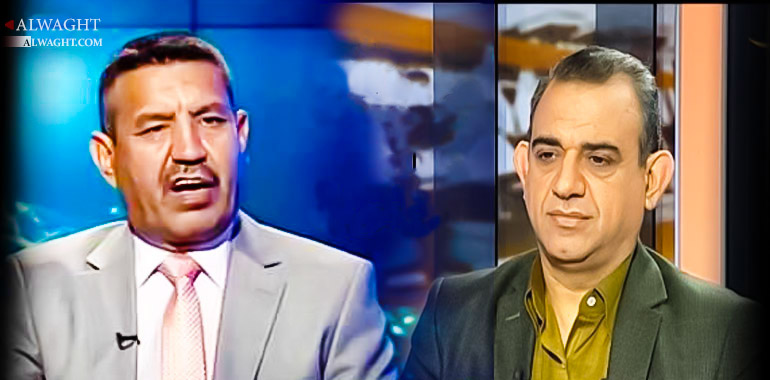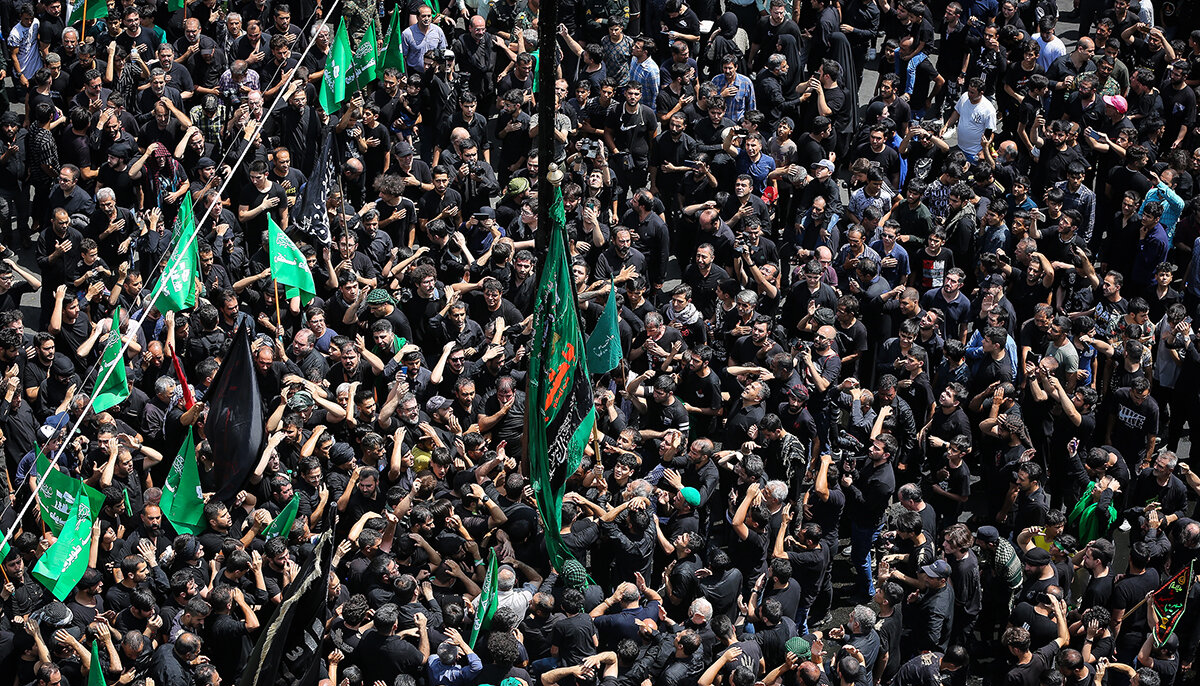Alwaght- Iraq has always been a scene for political avenging between the regional and global countries. The tribal, sectarian and ethnic differences have been means used by many of these countries to reach their goals as long as they set eyes on getting toehold in Iraq and obtaining the country’s natural resources. As the Iraqi army, backed by the popular forces, makes fresh dramatic gains the efforts have begun to deepen differences among the Iraqi sides. Recently, one of the Arabic-language newspapers has talked about an American-Turkish plot aiming at splitting Iraq and forming religion-based armed forces to be stationed in provinces in.
Some of the sources and reports have suggested that Washington intended to establish a Sunni military force in Anbar province, not to mention the information about the conferences under way in Amman between the Americans and the Al Anbar province’s tribal leaders to discuss establishment of the security and military force.
To shed light on the issue, Alwaght has conducted an interview with Iraqi-based political analyst Dr. Ali Jabouri and the security expert Fazel Abu Raqif.
Alwaght: What is the real goal behind the US efforts to form a Sunni military power, particularly in Al Anbar province?
Jabouri: This step is being taken as part of the instruments through which the United States of America is trying to implement its new strategy in the (West Asia) region, and it is an attempt to introduce a new reality to the regional relations and the region’s map. It seeks establishing ethnic cantons in the region. Iraq would be the first place in which this policy is to be adopted.
Although, the US official rhetoric advocates unity of the country, and Washington has come against any voices which struggled for division of the country, and it has cooperated with the Iraqi government through the anti-terror coalition, Americans are trying on the ground to pave the way for breaking Iraq into regions. The plan is set to be implemented through arming some tribal fractions and setting up other projects secretly. I think such a policy poses a huge danger to the region in general and to Iraq specifically while the country is dealing with a large challenge and it is facing the terrorism which has proven, with no doubt, that it is targeting all parties of the Iraqi community. Therefore, confronting the terrorism has to be powered by the unity of the Iraqi community with all its components, as well as the regional and global countries, in a way that leads to undermining of the capabilities of the terror groups. But, unfortunately, the US is moving exactly against this direction. Perhaps, this is a tradition of the US presidential elections. This step could be a propagandistic move aimed at supporting the Democratic Party’s campaign concerning battling the terror groups in Iraq. But at the end of the road this policy contradicts the US President’s and all of the US administration’s official discourse when they visit Iraq or when they talk at the Congress or other American institutions.
Abu Raqif: First of all, there is no need for forming a Sunni army. It was Iraq’s regular army, backed by the Sunni tribes that liberated the territories in Al Anbar province. Second, this move has been raised to be a means for fragmenting the Iraqi army and spreading divisions and differences. I believe that there are some Sunni fractions which worked to repel all these perils.
Of course the external powers do not want the good of Iraq, on the contrary, they eye fragmenting Iraq’s mosaic. They also want to weaken the sense of nationality in Iraq. But as it is clear, there are some Sunni fractions as part of the Public Mobilization Forces like Al Hamza Brigades derived from Albomahal and Aljaghayfa clans. Additionally, there are the Jabour Alalam clans which are dubbed Asa'ib Alalam and belong to Asa'ib Ahl al-Haq. Furthermore, other Iraqi tribes are attempting to cleanse the Iraqi territories of terror groups and are assisting the army across the country. They also give backup to the intelligence agencies and provide them with data round the clock about ISIS in their areas.
Alwaght: Considering the hazards of this American move on Iraq and the region, do you have any information about the US coordination with the Iraqi government on the formation of such a Sunni force in Al Anbar province?
Jabouri: No, absolutely not. No coordination has been made with the Iraqi government about formation of Sunni forces in Al Anbar. Just a couple of days ago we have been in the prime minister’s office for a press conference. The talk was about the likeliness of US soldiers' boots on Iraq's ground which would be deployed to the Syria-Iraqi borders, Baghdad and other places.
The prime minister has made it clear that Iraq would not approve of any combat force on its soil but at the same time he talked about the possibility of discussing the use of the oncoming American force for backing the Iraqi forces in special missions, because sometimes the air force is incapable of supporting the ground forces due to bad weather conditions or when the operations are conducted in remote areas. Thereby, the use of this American force is confined to where Iraq is in need of support and as part of the advisory forces which are coordinating their operations with the Iraqi government. Regarding the talks about formation of Sunni or Shiite or Kurdish forces, I think that the Iraqi official administration calls them baseless journalistic leaks.
Alwaght: According to a published article, the US officials have met Iraq’s opposition figures in Amman to discuss the future of the Sunni cities in Iraq in the post-ISIS era while at the same time the preparations are under way to form a large US-backed Sunni force. How do you see this?
Abu Raqif: First of all, I think that following the obliteration of ISIS, the damaged Sunni areas in Iraq would be reconstructed at the hands of their Shiite brothers. Concerning this meeting or other meetings, I believe that it falls under the category of the actions of the corrupt political money. It is a new heresy through which the terrorists want to divide the Iraqi community.
I think that such a conference does not exist at all, however, should it is truly held, the organizers are violating the law, and their actions are to be addressed by the constitution’s seventh article, the first and second sections of which consider punishing those who prepare the ground for the terrorist ideology. The Iraq government is committed to implementation of the second section which prevents Iraq from becoming a gate for the terrorism and a safe haven for its activity. And of course the Iraqi government does not back such suspicious meetings, as, besides, no ear is lent to them and they have no place among the Iraqis.
Alwaght: Finally, there are information about a Turkish-American plan for breaking Iraq into three regions which is set to be implemented by phases following battling ISIS and destroying it irreversibly. What is your idea about that?
Abu Raqif: First of all, the Turkish side has asserted that Turkey and the Turkish forces were not operating within the US-led international coalition. Secondly, the time is not appropriate to partition Iraq based on this model. At the same time, the Iraqi people have earlier become aware of such plots and they categorically rejected them. They have cut the road of such plans. But such agendas would divide the Iraqi community afresh.
Jabouri: Yes, some countries’ interests are best served by fragmented Iraq. They think that their regional roles and movements in the region are at odds with existence of a united Iraq with an outstanding and promising economic power. Among such countries are Saudi Arabia and Turkey which are backing splitting Iraq and fragmenting it into small ethnic and sectarian cantons just like Kurdistan region for example.
The US should fulfill its vows. It always promised the world and the Iraqis specifically, that it would build a democratic government that would present a pattern to the region in terms of serving the justice for all components of the Iraqi society and paving the way for peaceful power transitions.
Furthermore, I think that the US plan’s results would be grave in the shadow of the circumstances which have always been gloomy due to the former regime’s divisive policies between the Iraq’s Sunni, Shiite and Kurdish communities. These fragmentary policies would leave a negative impact on the whole region’s countries. Actually, these plans’ negative effects would influence other regional countries which are, like Iraq, comprised of sectarian and ethnic groups. Saudi Arabia has the all-Shiite Eastern Region and Turkey which is home to a remarkably large Shiite population. Therefore, once the sectarian fragmentation project is implemented in Iraq, its impacts would not be limited to Iraq but they would envelope the whole region. I think the holders of these policies should be well aware that the disastrous outcomes would not stop to the Iraqi borders but they go beyond to include the region’s countries collectively.



























